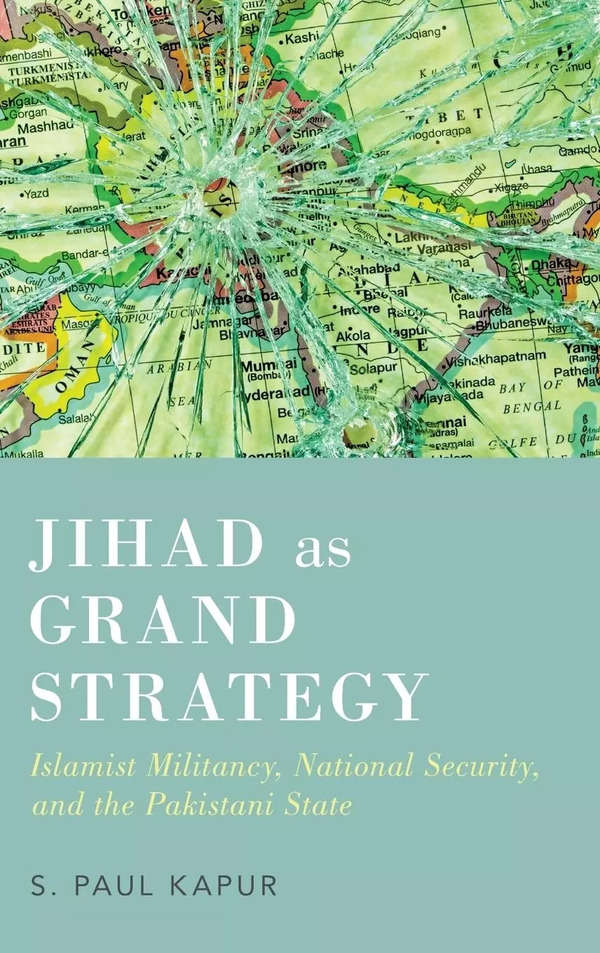S. Paul Kapur, who previously worked on US-India relations, has been nominated by the Trump administration to lead the South Asia bureau at the State Department, which manages diplomatic ties with India and the region. A statement from Vice President J.D. Vance’s office announced the nomination: “Paul Kapur, of California, to be Assistant Secretary of State for South Asian Affairs.” His name was included among numerous appointments submitted for Senate consideration and confirmation. Kapur is currently a professor at the Naval Postgraduate School, specializing in South Asian politics, security, and international relations. If confirmed, he will become the second Indian-descendant top US diplomat overseeing South Asian affairs. However, unlike his predecessor, he will manage a smaller regional portfolio.
S Paul Kapur is no stranger to South Asian geopolitics. A professor in the Department of National Security Affairs at the US Naval Postgraduate School and a fellow at Stanford’s Hoover Institution, he has spent decades analyzing the region’s security dynamics. He previously served in the State Department’s Policy Planning team during the final year of the Trump presidency, focusing on South Asia. His academic pedigree includes a PhD from the University of Chicago and a BA from Amherst College, and he has held teaching positions at Claremont McKenna College and Stanford.
Kapur has written extensively about South Asian security, particularly Pakistan’s use of jihadist militancy and nuclear deterrence strategies. His books include Jihad as Grand Strategy: Islamist Militancy, National Security, and the Pakistani State and Dangerous Deterrent: Nuclear Weapons Proliferation and Conflict in South Asia. He is also the co-author of India, Pakistan, and the Bomb: Debating Nuclear Stability in South Asia and co-editor of The Challenges of Nuclear Security: US and Indian Perspectives. Beyond academia, he has been directly involved in strategic dialogues, running US-India Track 1.5 discussions and other defense-related engagements for the Department of Defense.
Pakistan: Jihad as a Grand Strategy

Kapur is among the most vocal critics of Pakistan’s reliance on Islamist militancy as a tool of state policy. In Jihad as Grand Strategy, he lays out how Pakistan has not merely tolerated but actively nurtured militant groups as a means of countering India and maintaining influence in Afghanistan. He argues that this is not a symptom of state weakness but a deliberate strategy.
His research suggests that Pakistan’s military and intelligence establishment view militant groups as a cost-effective way to challenge a much larger India without engaging in full-scale war. However, he also warns that this strategy has spiraled out of control. While Pakistan initially benefited from using jihadist groups as proxies, these same organizations have increasingly acted autonomously, sometimes even turning against the state itself.
Kapur’s perspective aligns with US skepticism toward Pakistan’s counterterrorism claims. He argues that while Pakistan often presents itself as a victim of terrorism, its deep ties to groups like Lashkar-e-Taiba and the Haqqani Network indicate a long-standing policy of supporting militant actors when it suits strategic interests.
India: A Strategic Partner, But Not Without Challenges
Kapur takes a more balanced but still critical view of India. He sees India as an essential US partner, particularly in the context of China’s rise. In a 2023 essay co-authored with Harsh Pant of the Observer Research Foundation, Kapur highlighted the seemingly inevitable trajectory of US-India ties. He pointed to strategic imperatives such as maintaining a free and open Indo-Pacific, countering Beijing’s influence, and boosting economic ties as major driving forces.
However, he cautioned against assuming that the partnership would deepen automatically. “The effective formulation and execution of cooperative policies requires careful management,” he wrote, warning that poor management could lead to “unmet expectations” and even discord. He specifically cited disagreements over the war in Ukraine and the lack of a US-India free trade agreement as sources of friction.
On nuclear strategy, Kapur has analyzed how India’s doctrine interacts with Pakistan’s. He has argued that nuclear weapons have not brought stability to South Asia but have instead locked the region into a dangerous cycle—Pakistan engages in proxy warfare, India responds with conventional military action, and both sides remain in a perpetual state of crisis. He views India’s nuclear doctrine as one that has evolved cautiously, but he also suggests that India’s strategic restraint in responding to terrorist attacks (such as Mumbai 2008) has allowed Pakistan’s proxy war strategy to continue without major consequences.
What This Means for US Policy
Kapur’s academic background suggests a tough stance on Pakistan. His research makes it clear that he views Pakistan’s use of jihadist groups as a deliberate state policy, not just a byproduct of instability. This suggests that under his leadership, the US will remain skeptical of Islamabad’s claims of cracking down on terrorism. Given that he has directly worked on US-India Track 1.5 dialogues for the Department of Defense, his position also indicates a continuation of efforts to deepen US-India ties, though not without recognizing the challenges in the relationship.
At the core of Kapur’s approach is a belief that South Asia’s security dynamics are deeply interconnected—Pakistan’s militant strategies fuel instability, India’s responses shape deterrence, and nuclear weapons complicate crisis management. His leadership at the State Department’s South Asia desk suggests a policy direction that will be critical of Pakistan, supportive of India, and mindful of the complexities that make regional stability so elusive.
